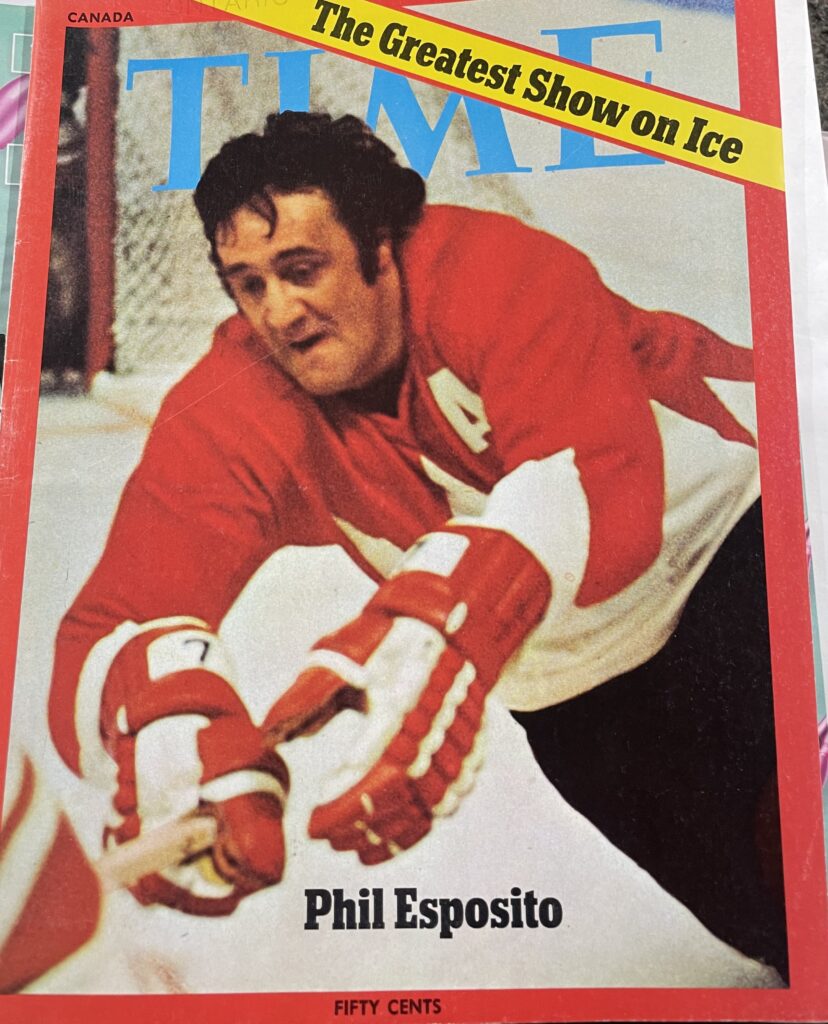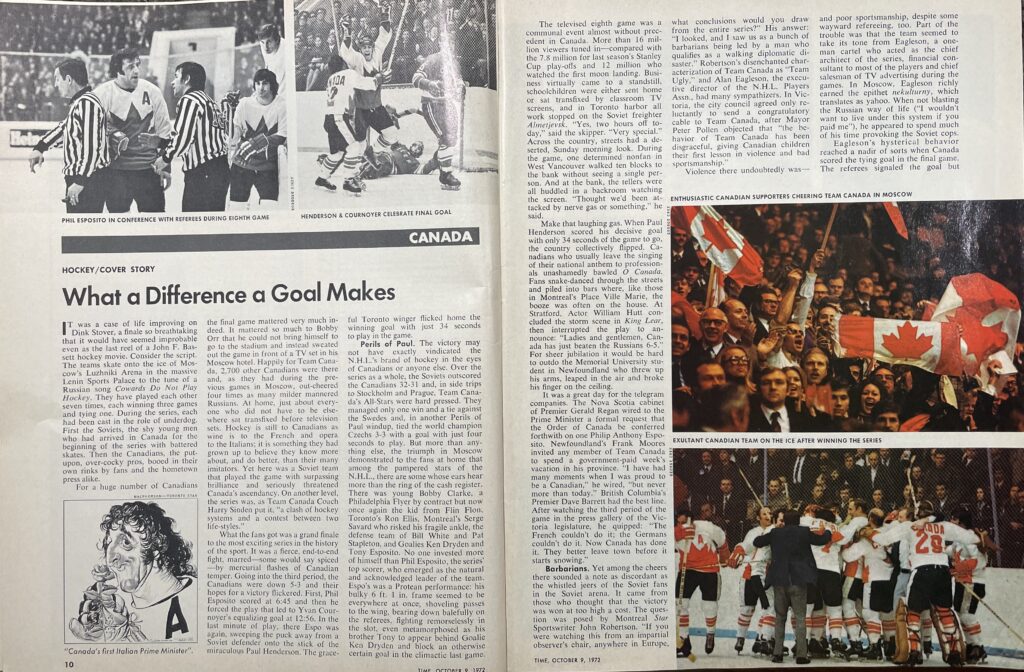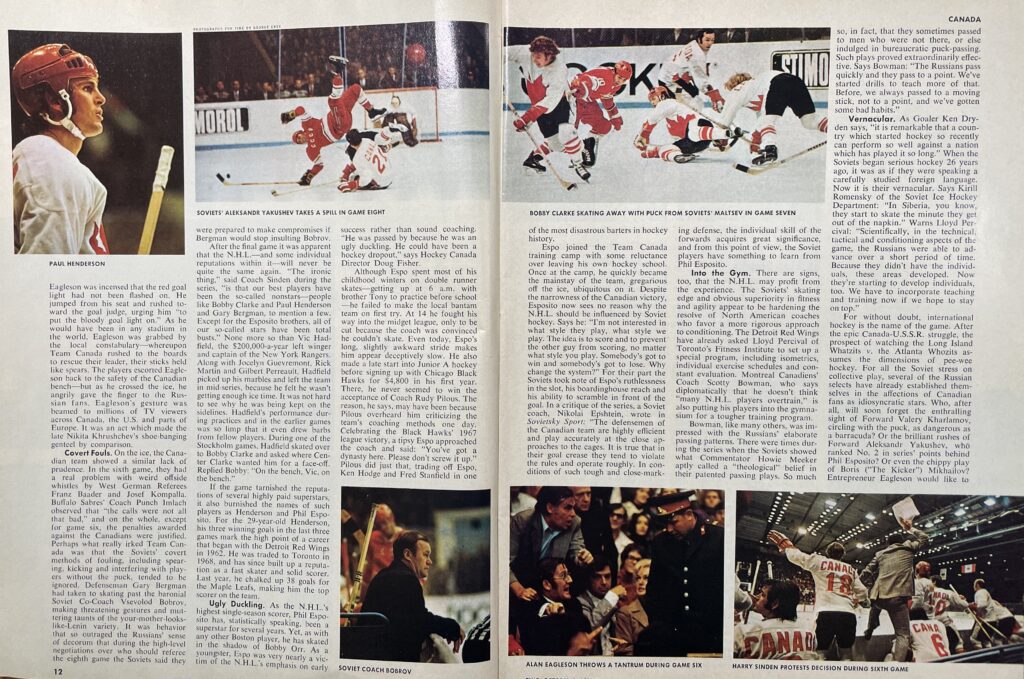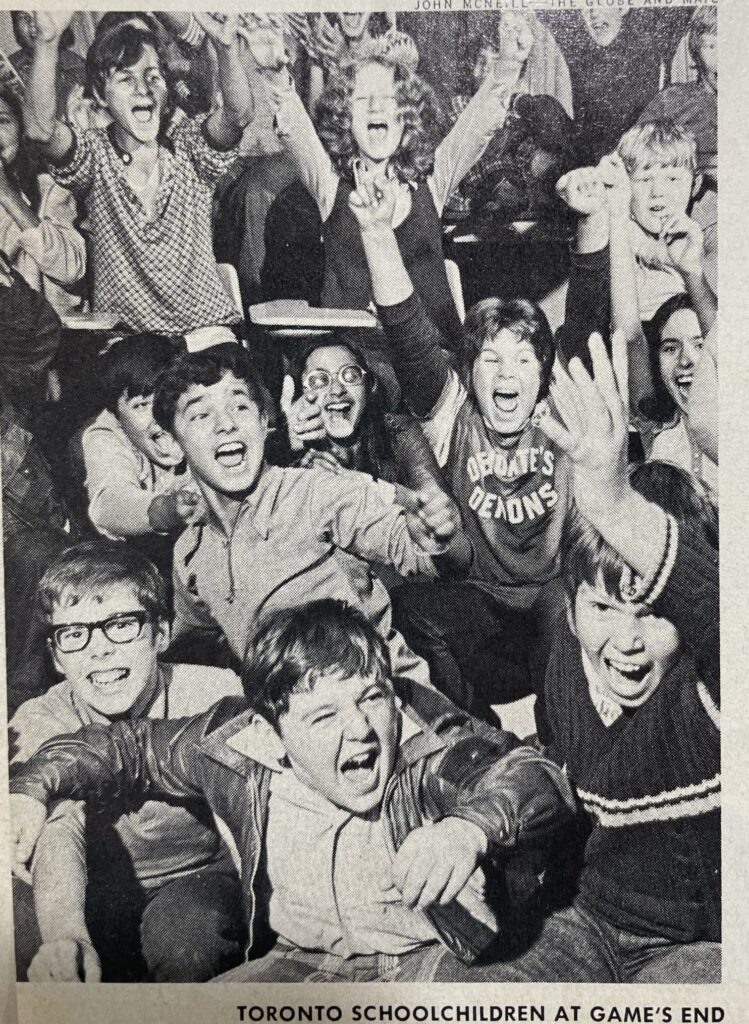Our story went to press two days after the final game



see a repeat of the Team Canada-Soviet format in a couple of years, but the N.H.L. already has other plans. In an end-run around Eagleson, N.H.L. President Clarence Campbell struck a deal in Moscow that may have the Soviet National Team — or possibly the Central Army Team, which formed the backbone of the series for the Soviets — play three games in the U.S. early next year. The games would be played in late January and early February against New York, Boston and Chicago. The confrontation will test the legend of Bobby Orr’s invincibility as well as the now hazardous claim that any top N.H.L. team in peak condition can beat the Russians. And, apart from providing a yardstick against which the N.H.L. in mid-season form can be measured, the games should remove from international hockey the element of chauvinism which it so little needs.
The Canada-U.S.S.R. series displayed the most thrilling hockey that has been seen for eons, which understandably makes international hockey seem a sport whose time has come. But there are risks that were all too evident in the tendency of some Canadians to view the contest as a test of national virtues. Sport, according to Marshall McLuhan, is “warfare under wraps.” It would be an enduring shame if international hockey is plagued by the imperative of national prestige that have sapped the Olympics. The game itself is so spectacularly taut and aggressive that it scarcely needs the props of nationalism to add an extraneous — and essentially false — excitement.




0 Comments